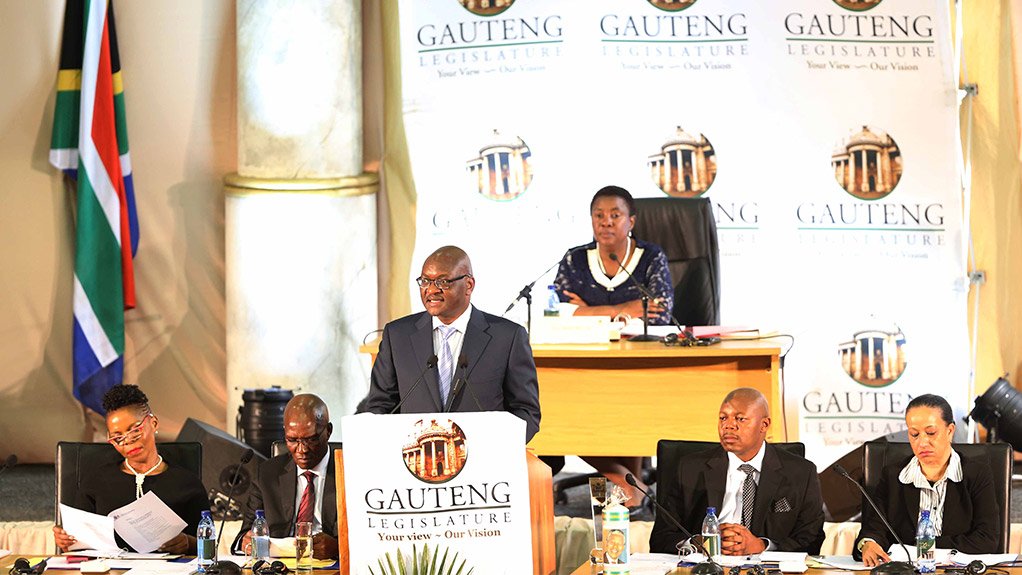The Gauteng provincial government aims to inject more than R300-million into information and communications technology (ICT) infrastructure over the next three years, Gauteng Premier David Makhura said on Monday.
While this was a fraction of the planned R32-billion infrastructure development investment planned for South Africa’s most populous province over the next four years, he said the investment in ICT, particularly e-government services, would bolster Gauteng’s ambitions of evolving into a ‘smart’ province.
Delivering his second State of the Province address, Makhura said the ICT strategy of the province included the creation of new local industries across the ICT value chain, such as device manufacturing, maintenance and repairs, the creation of new applications and the provision of services in the ICT sector.
“We will also work with private sector network companies to discuss how we can fast-track the realisation of our goal of achieving 100% connectivity over the next five years and unleash the potential of the local ICT industry to promote small, medium-sized and microenterprise development and township economy revitalisation,” he averred.
The ICT connectivity would also be extended to public schools to facilitate e-learning.
ICT and broadband emerged as one of four key areas identified for infrastructure investment in the next few years, along with public transport, broadening of the energy mix and water and sanitation, to aid with three macro interventions – spatial reconfiguration, township economy revitalisation and massive infrastructure investments – as the province was “reconfigured” into five development corridors.
Makhura said that, going forward, the central development corridor would be anchored around the City of Johannesburg as the finance, ICT, pharmaceutical and services hub.
“The economy of the central corridor will be consolidated around Joburg as the financial capital and hub of the services industry of our continent,” he said, noting the “critical” presence of global high-technology companies and pharmaceutical firms.
Meanwhile, the eastern development corridor would be cemented around the economy of the Ekurhuleni metropolitan, as the hub of manufacturing, logistics and transport industries, while Tshwane, as the administrative capital City and hub of the automotive sector and research, development, innovation and the knowledge-based economy, would form the northern development corridor.
The western and southern corridors, encompassing the West Rand district and Sedibeng respectively, would represent the creation of new industries, new economic nodes and new cities.
EMAIL THIS ARTICLE SAVE THIS ARTICLE
To subscribe email subscriptions@creamermedia.co.za or click here
To advertise email advertising@creamermedia.co.za or click here











